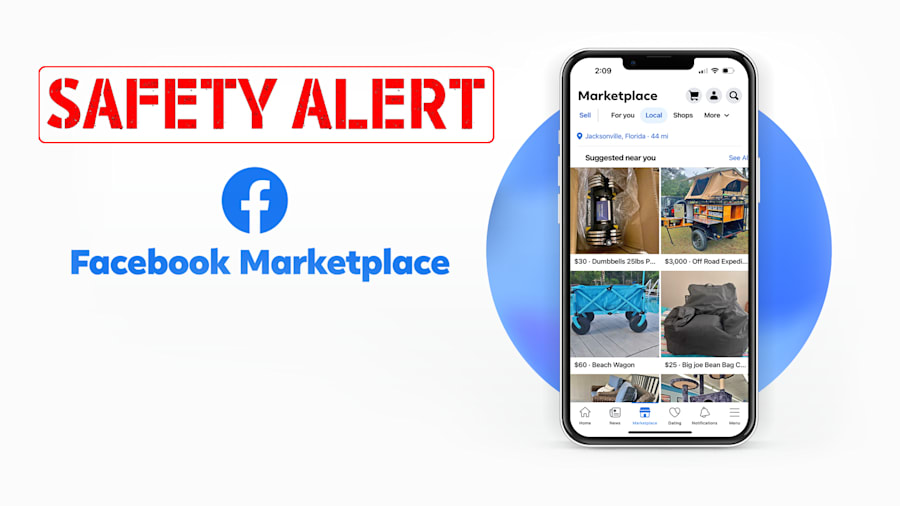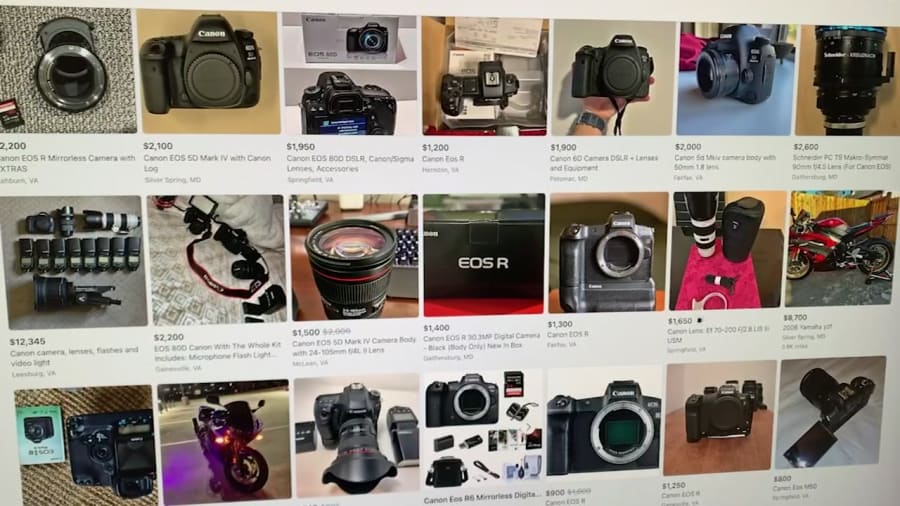A safety alert and a stark reminder of the dangers of buying and selling online. Recently, an off-duty police officer from New York was shot and killed during a robbery that was allegedly arranged over Facebook Marketplace for the sale of a motorcycle. While it’s an extreme example, it’s a real danger facing anyone who uses these online platforms.
The amount consumers have lost to all types of social media fraud grows every year. In 2021 alone it was $770 million. But no matter how sophisticated scammers are, there are ways to protect yourself.
Meeting place
Think about where the sale will take place and it should be in public because you never want to give someone your home address. The Jacksonville Sheriff’s Office recommends you:
- Make the transaction during the day.
- Meet in a well-populated area.
- Take another person with you.
- Tell someone else when, where and who you are meeting.
JSO offers the Police Memorial Building Downtown (open 24/7) or one of its substations throughout the city (open weekdays 8 a.m. to 5 p.m.) to make that person-to-person transaction. JSO says it can be a good deterrent because someone coming with criminal intentions is less likely to want to meet you at a police station.
Find a JSO substation near you below:
Payment
When it comes to how you pay, Consumer Reports experts say you should never exchange cash.
Facebook Marketplace recommends a secure person-to-person payment method, but Consumer Reports says not all P2P apps are the same.

“For each of these apps, don’t just assume that their default settings are ones that manage your privacy, security, and also have the best policies for helping you get your money back in case of an error,” explained Delicia Reynolds Hand, Consumer Reports’ Director of Financial Fairness Advocacy.
Consumer Reports looked at four popular peer-to-peer apps -- Apple Cash, Cash App, Venmo, and Zelle -- and found that none of them reimburse users for sending money to the wrong person or sending too much money by mistakenly adding extra digits to an intended amount.
Research
Michelle Concha, who loves shopping on Facebook Marketplace, has her own safety advice: peek at the seller’s profile.
“I actually bought a car on Marketplace! And it’s because we had people in common in the area that I felt actually more secure about buying the car from that person,” Concha explained.
Protect your personal information
This is important, too: Scammers lurking on Facebook Marketplace aren’t always after your money. Consumer Reports warns some are after your data.
So to protect yourself, never share personal information like your home address, but also, don’t give out your phone number.

The Better Business Bureau warns fake buyers want to hijack your phone number. Here’s how the scam works:
- The scammer asks for your phone number so that they can text you a verification code.
- They instruct you to reply with the 6-digit code on the platform where your item is listed.
- The scammer is setting up a Google Voice number linked to your phone number.
- If you send the verification code, the scammer will be able to complete the account setup.
- Then, the scammer can then use that phone number to conceal their identity.
- Or, if a scammer gets your Google Voice verification code and other information about you, they can pretend to be you and open new accounts in your name.
If you spot someone on Facebook Marketplace trying to pull off a scam, the BBB recommends you immediately report them to the online platform.



